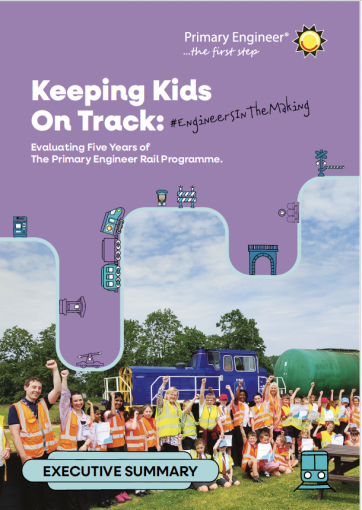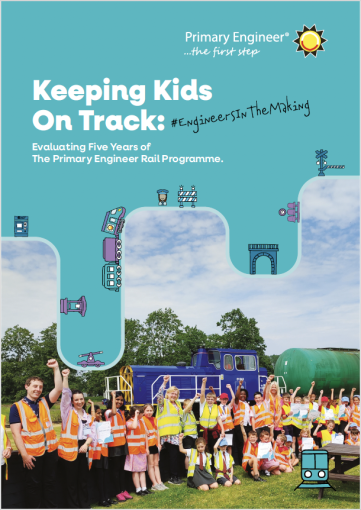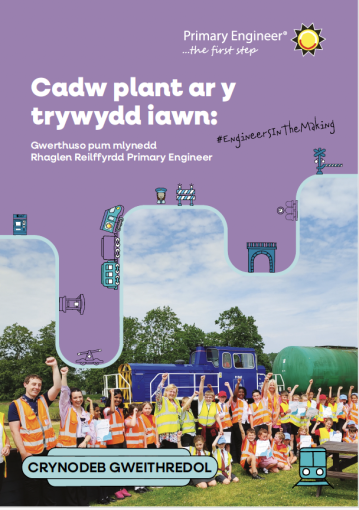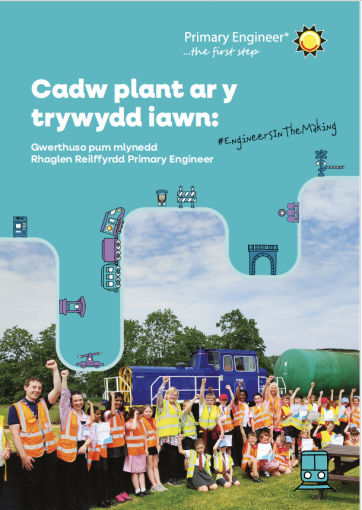The post Educational Not-for-Profit launches report showcasing the impact of Engineering Outreach with expert panel at The University of Edinburgh. appeared first on Primary Engineer.
]]>
Leaders from industry, education and government came together for a panel to discuss the findings of a report from Primary Engineer and explore strategies for cultivating a vibrant skills landscape within the Scottish rail sector.
The report, titled “Keeping Kids on Track: Evaluating 5 Years of the Primary Engineer Rail Programme” sheds light on the significant positive impact the programme has had on primary school pupils across the UK. It has been running in Scotland, England & Wales and Primary Engineer are hosting three launches to address the specific needs of each education system.
For five years, the Primary Engineer Rail Programme has brought practical Rail Engineering into classrooms and helped inspire the next generation of engineers. Launched in 2018 with Hitachi Rail, the programme embeds engineering at the heart of learning as young pupils collaborate to design, build, and refine rail vehicle models. Over the course of five years the Primary Engineer Rail Programme has provided Rail Engineering learning opportunities for over 40,000 pupils.
The programme culminates in a Celebration Event where pupils test and challenge their designs and share what they have learned with engineering professionals. The report was launched with Scottish Engineering and The University of Edinburgh School of Engineering, who partner with Primary Engineer in Edinburgh. Panelists were able to see the impact of the Primary Engineer Rail Programme first hand, and the excitement this inspires amongst the pupils and teachers who take part.
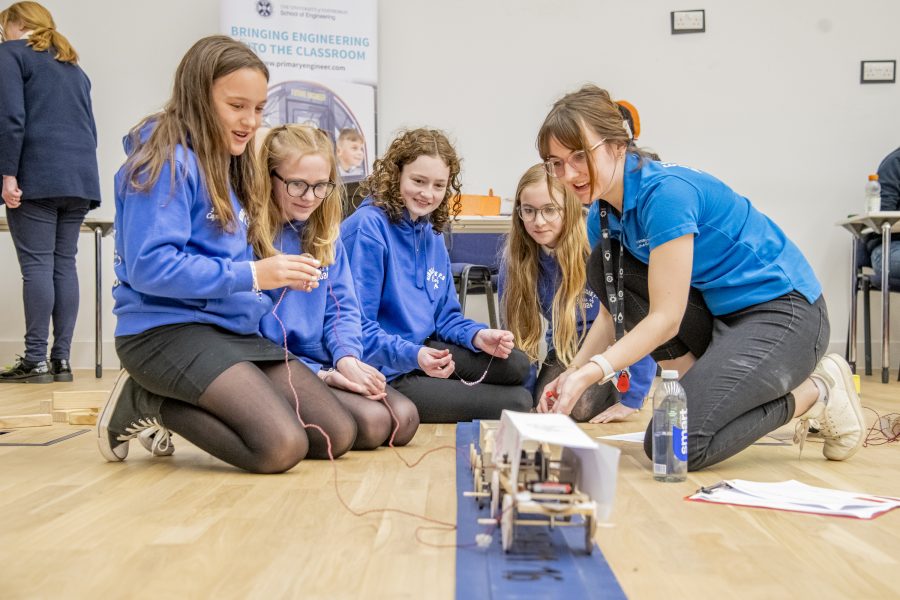
Professor Gareth Harrison, Head of the School of Engineering, The University of Edinburgh said:
“We were delighted to host this joint event with Primary Engineer and Scottish Engineering to discuss how we can shape the future of Scotland’s rail industry together. Having been proud partners of Primary Engineer for many years, we have seen the positive impact the Rail Programme has on local primary school pupils and the important role it plays in inspiring them about career opportunities in the sector.
Today also marked this year’s Rail Programme celebration event which brought the pupils, teachers and engineers back together on campus to showcase and test out their model train creations. It was fantastic to see how this initiative ignites a passion for engineering in young minds.”
Dr Susan Scurlock MBE, Founder and Chief Executive of Primary Engineer, was also on the panel. Commenting on launching the report in Scotland she said:
“The findings of the report overwhelmingly support that the Primary Engineer Rail Programme is successful in its objectives and shows that our approach has inspired young people to think differently about engineering – it has also helped them realise that anyone can be an engineer and sparked an interest in Rail Engineering.
It was amazing to be hosting this with The University of Edinburgh School of Engineering, they have been working with us for the best part of a decade and have been a core part of our success in Scotland. Huge thanks to our panelists Louise Shaw, Gordon Masterton, Lydia Fairman and our chair Paul Sheerin for sharing their expertise.”
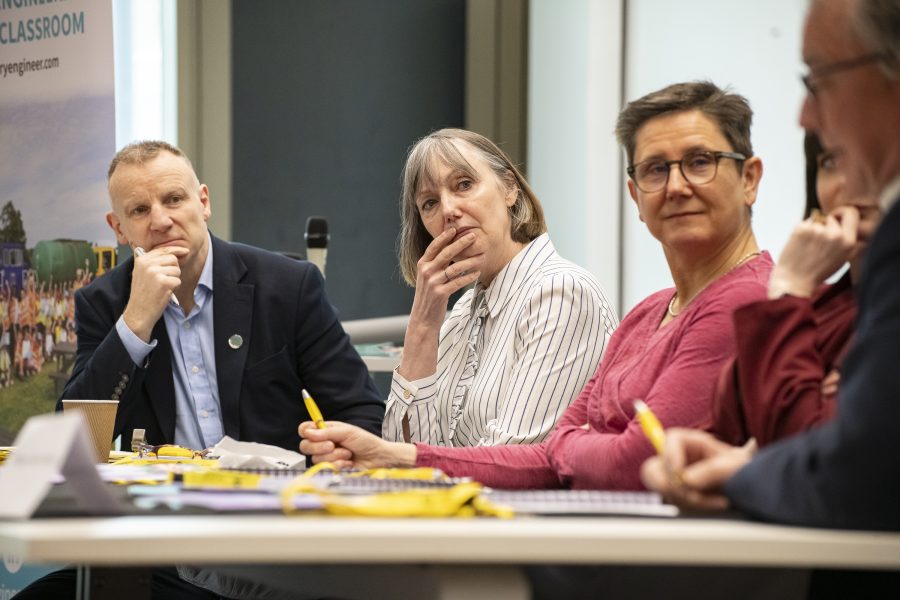
Alongside the key findings of the report are next steps Primary Engineer are taking to ensure the programme continually improves and reaches more pupils, not only in Scotland, but across all devolved nations. The launch of the report in England will be hosted at Rail Live with Porterbrook on June 19th and 20th where school pupils will show off their engineering skills at the centre stage.
The programme continues to be available across England, Scotland and Wales thanks to the many partners who fund the programme, with over 300 schools and 14,500 pupils expected to take part in the 2023/2024 academic year.
The report is available from the Primary Engineer website: https://www.primaryengineer.com/keeping-kids-on-track.
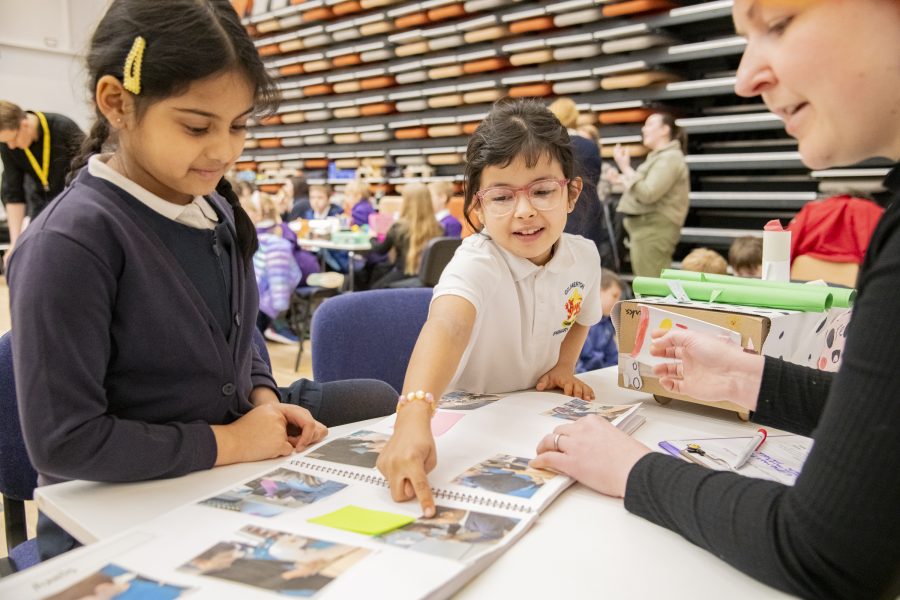
The post Educational Not-for-Profit launches report showcasing the impact of Engineering Outreach with expert panel at The University of Edinburgh. appeared first on Primary Engineer.
]]>The post Edge Hill creating the Interactive Teddy Bear appeared first on Primary Engineer.
]]>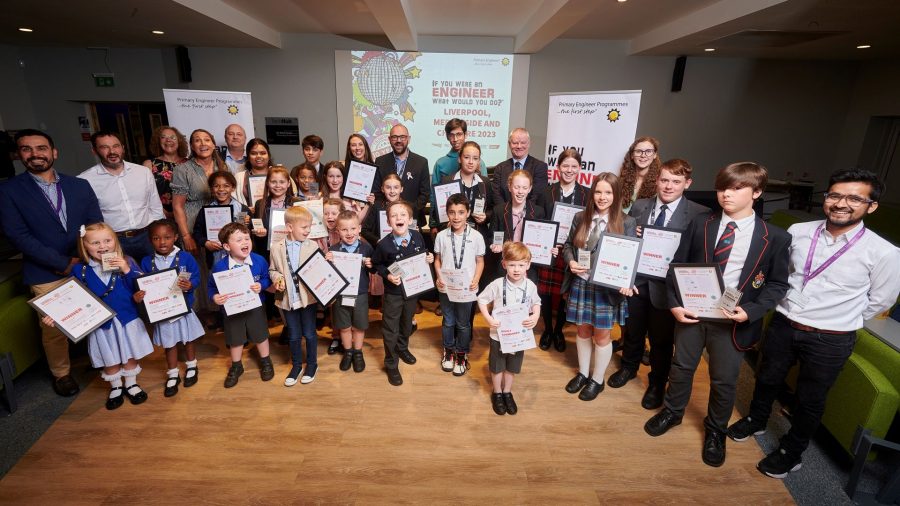
Edge Hill are one of our Partners for Liverpool, Merseyside and Cheshire as part of our annual engineering competition which asks pupils aged 3-19 ‘If you were an engineer what would you do?’ and encourages pupils come up with creative solutions to real-world problems.
Edge Hill have selected this design to turn into a prototype over the 2023/2024 academic year which will be unveiled at the next Liverpool, Merseyside and Cheshire Awards Ceremony and Public Exhibition during the Summer term.
They chose this design because it could really help children with autism.
Beginning the prototype
The teddy bear prototype design was selected by a group of three students as it provided the opportunity to combine practical electronics development with an application that could be used for engaging with children with autism. Two of the students are studying degree programmes at Edge Hill University in Electrical Engineering and Industrial Automation and Robotics, respectively. The third member of the team was on international placement from Mexico, studying a degree in Biomedical Engineering at Monterrey, Mexico. The project thus provided the opportunity to do some multidisciplinary project work that was relevant to their respective degree programmes.
The initial work was performed over 12-weeks in Semester 1 as part of the Level 5 Professional Practice in Engineering module, which resulted in the design, implementation and testing of basic level functionality. The developed prototype is planned to be enhanced and refined over Semester 2 and the summer months.
The post Edge Hill creating the Interactive Teddy Bear appeared first on Primary Engineer.
]]>The post GKN Aerospace creating the C.W.A.B appeared first on Primary Engineer.
]]>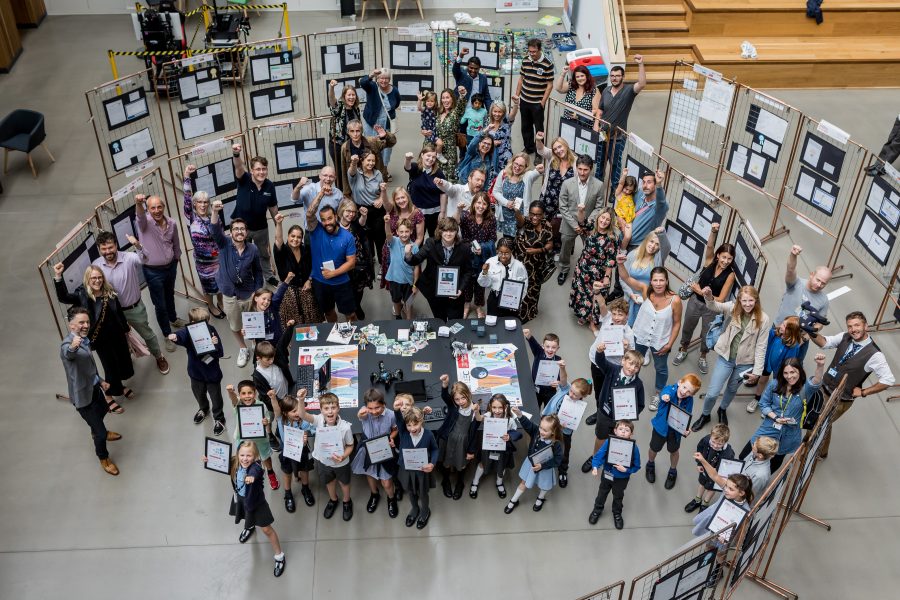
GKN Aerospace are one of our Partners for South West England as part of our annual engineering competition which asks pupils aged 3-19 ‘If you were an engineer what would you do?’ and encourages pupils come up with creative solutions to real-world problems.
GKN Aerospace have selected this design to turn into a prototype over the 2023/2024 academic year which will be unveiled at the next South West England Awards Ceremony and Public Exhibition during the Summer term.
They chose this design because it addresses an important problem – accessibility of water in remote locations.
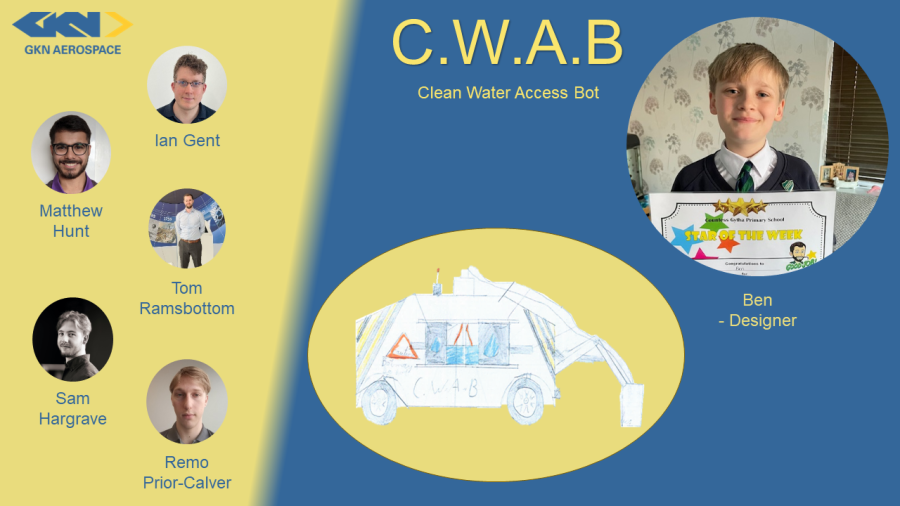
Beginning the prototype
The GKN Aerospace ProtoTeam is made up of five engineers with a variety of expertise from different projects:
- Dr Ian Gent has a background in chemistry and is working on composites research
- Tom Ramsbottom is developing new composite manufacturing technologies
- Matthew Hunt also works with composites as well as sustainability analysis
- Remo Prior-Calver is involved in sustainability research
- Sam Hargrave is working on machining process development and modelling
With the variety of skill sets in the team such as CAD, part analysis, material science, automation, additive manufacturing, machining, electronics and sustainability analysis, they sat down and used their different perspectives to review the submissions based on several factors:
- Motivation for the prototype (what problem does it solve, who does it benefit, ethical considerations)
- Design complexity (number of parts, size, accuracy & precision requirements)
- Materials required
- Programming complexity
- Budget
- School location
After 3 rounds of down-selection including key stakeholders (such as those responsible for our budget), the team landed on the Clean Water Access Bot (C.W.A.B – a strong acronym is very important!), which performed well in all of the above categories. The prototype addresses an important problem – accessibility of water in remote locations. The team intends to use Ben’s design to create a semi-automated water retrieval system that can pump and store water on-board and transport it to those who need it.
To kick things off the team started with a benchmarking exercise, looking for similar concepts or products that could be used as inspiration. Additionally, Tom, Matt and Sam visited the University of West England (UWE) to have a look at a previous prototype and ask some questions about the process.
The key challenges that stand out for them were:
- The size of the prototype – water capacity would be limited by vehicle size
- Programming the movement of the vehicle
- How the C.W.A.B will load the water into the storage container depending on where it’s in use (a lake would work differently to a well!)
- Water filtration – the water being retrieved in remote locations is unlikely to be clean
- Design for repair – the more complex the design, the harder it is to repair, especially if it is operating in remote/challenging environments
However, the team is excited to now move into the design phase, starting by drawing up some concepts that address these challenges. They plan to focus on their expertise in design and manufacturing to create the water retrieval and storage system, and then potentially retrofit it onto a readily available remote control vehicle. Once the basic functionality is complete, they may consider some extra features such as water filtration.
They have also had a call with Ben and his teacher Megan to talk about the project, listen to his ideas and motivation behind the design, and share some insight on their design concepts. The team look forwards to visiting the school in the near future to update Ben and his class on our progress!
The post GKN Aerospace creating the C.W.A.B appeared first on Primary Engineer.
]]>The post Anglia Ruskin University creating the Power Saving Kettle appeared first on Primary Engineer.
]]>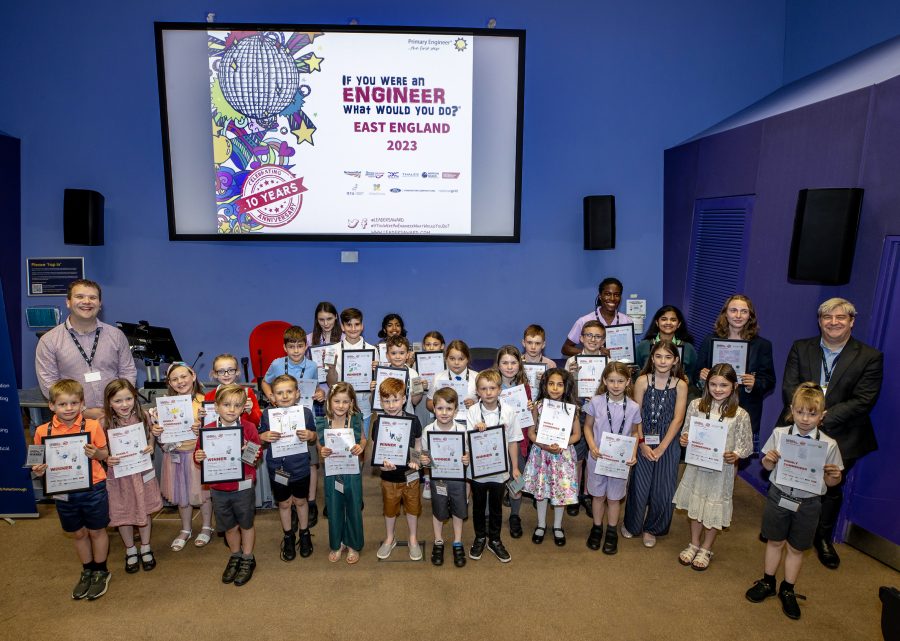
Anglia Ruskin University are one of our University Prototyping Partners for East England as part of our annual engineering competition which asks pupils aged 3-19 ‘If you were an engineer what would you do?’ and encourages pupils come up with creative solutions to real-world problems.
Anglia Ruskin University have selected his design to turn into a prototype over the 2023/2024 academic year which will be unveiled at the next East England Awards Ceremony and Public Exhibition during the Summer term.
They chose this design because this idea we all use kettles on a daily basis whether that’s a hot drink, boiling water for cooking or a hot water bottle. The team at Anglia Ruskin University had spoken to lots of people who said very similar things about overfilling kettles and the waste of electricity.
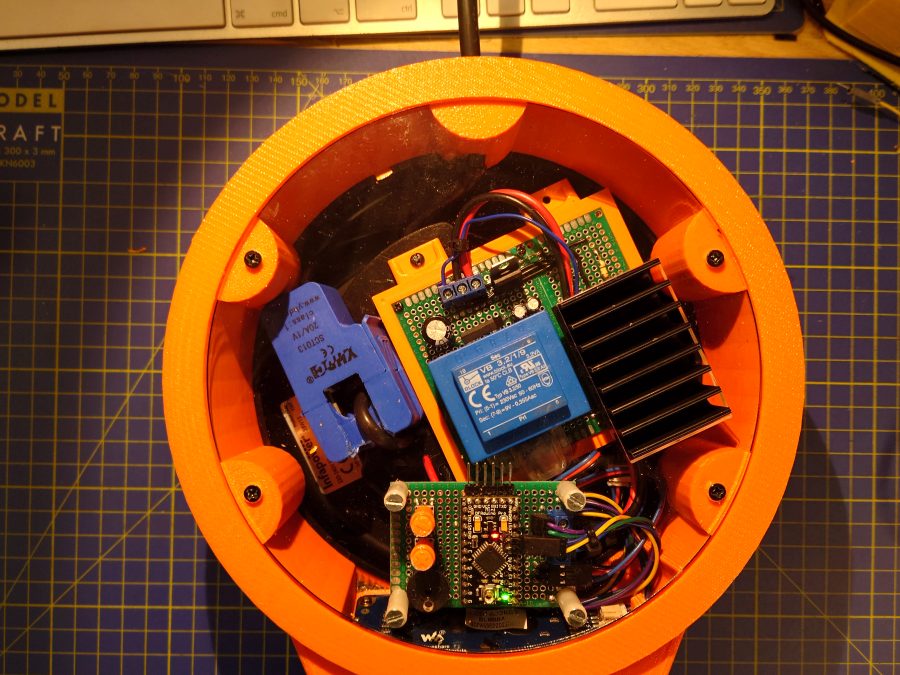
Beginning the prototype
A group of students and the technical staff at Anglia Ruskin University have developed this prototype to show that this is definitely a viable and usable invention.
The circuit design and programming were undertaken by one of their technical staff. The physical appearance along with original CAD modelling was inspired by the initial design produced as part of the competition and then was developed by a final year undergraduate student.
The 3D model was then resized to fit by another of their Mechanical Engineering students and another member of the technical staff then printed the final kettle base on one of their higher end 3D printers.
The prototype can be updated to acknowledge the ongoing increases in energy cost to make sure that it is always up-to-date and attentive to our kettle overfilling habits.
We can’t wait for the next update on this prototype!
The post Anglia Ruskin University creating the Power Saving Kettle appeared first on Primary Engineer.
]]>The post New Report Reveals Transformative Impact of Primary Engineer Rail Programme on School pupils appeared first on Primary Engineer.
]]>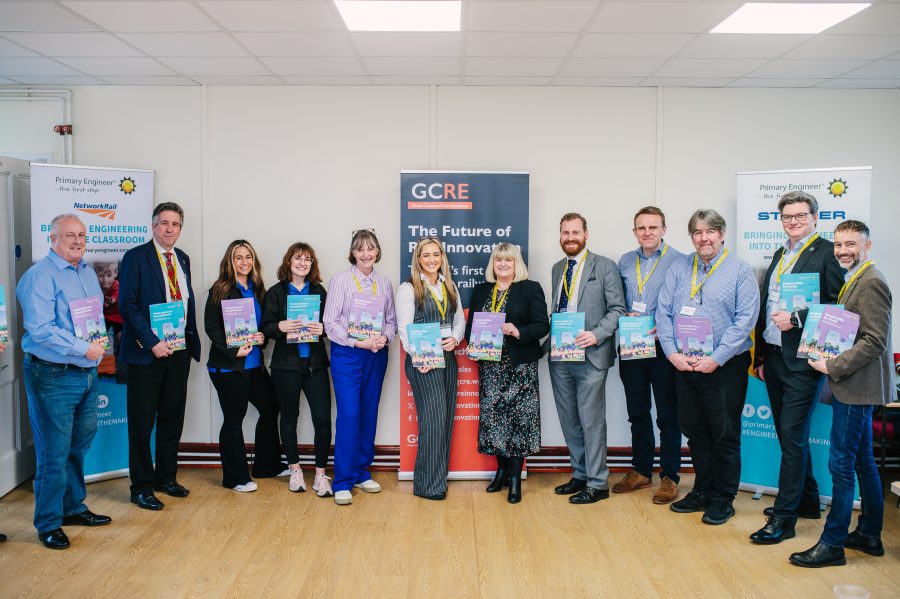
The report, titled “Keeping Kids on Track: Evaluating Five Years of the Primary Engineer Rail Programme,” sheds light on the significant positive impact the programme has had on primary school pupils across the UK. Unveiled on March 14th in Neath, Wales, Primary Engineer were joined by key figures from industry and education to explore the report’s findings and discuss the revelations about the transformative power of the programme.
For five years, the Primary Engineer Rail Programme has brought practical Rail Engineering into classrooms and helped inspire the next generation of engineers. Launched in 2018 with Hitachi Rail, the programme embeds engineering at the heart of learning as young pupils collaborate to design, build, and refine rail vehicle models. Over the course of five years the Primary Engineer Rail Programme has provided 40,000 Rail Engineering learning opportunities across England and Scotland, expanding its reach to Wales since 2023.
The programme culminates in a Celebration Event where pupils test and challenge their designs and share what they have learned with engineering professionals. The report was launched with the Global Centre for Rail Excellence (GCRE), who partner with Primary Engineer in Neath, Wales. Guests of the roundtable were able to see the impact of the Primary Engineer Rail Programme first hand, and the excitement this inspires amongst the pupils and teachers who take part.
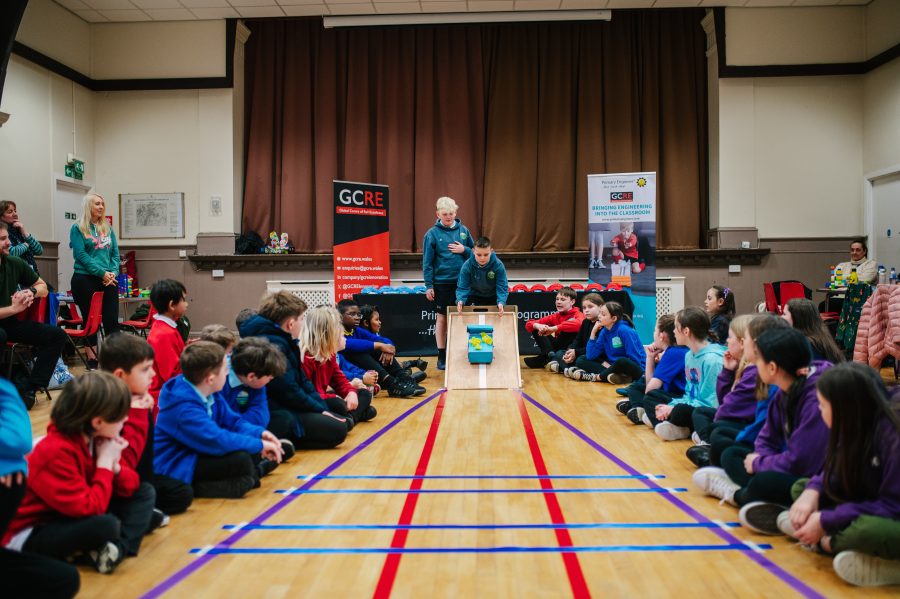
Dr Debra Williams, Chair of the Global Centre of Rail Excellence, commented:
“The celebration event we held this week was a fantastic success and it was wonderful to see the very impressive models that the young people have been working hard on over these last few months. We’re incredibly grateful to the Primary Engineer team for their work and the support we have received from our partners in the UK and Welsh Government.
“For the Global Centre of Rail Excellence, this is a critical strand of work for us. We want to inspire the next generation of young engineers, scientists and researchers living locally to see the exciting future they can build through their passion for scientific inquiry and problem solving. That starts by ensuring young people take an interest in STEM and, importantly, have the opportunity to develop their skills. We want this project with Primary Engineer to be the start of a long-term programme of activity with local schools and young people that helps develop the interests of young people and helps us develop a long-term pipeline of talented people to come and use their skills at the GCRE site.
“The report Primary Engineer have published this week showing their impact on the schools and pupils they have worked with over the last five years shows what can be achieved. Young lives can be transformed when they discover their passion and it’s great to be involved in such an important programme.”
Also on the panel was Dr Susan Scurlock, Founder and Chief Executive of Primary Engineer. Commenting on the launch of the report and the culmination of five years of the programme, Susan said:
“The findings of the report overwhelmingly support that the Primary Engineer Rail Programme is successful in its objectives. Young people are inspired by Engineering, develop richer understandings and interests in Rail Engineering, and express a desire to learn more about Engineering following their experience with us.
It was amazing to be in Neath to launch this report, whilst we have delivered this programme successfully in England and Scotland over the years, we have more recently deployed the programme in Wales with resounding success, thanks to the support of The Department for Business and Trade (DBT), The Global Centre of Rail Excellence (GCRE), Network Rail, Innovate UK, Stadler Rail and the Welsh Government. We look forward to growing our work in Wales, as well as expanding further across the UK.”
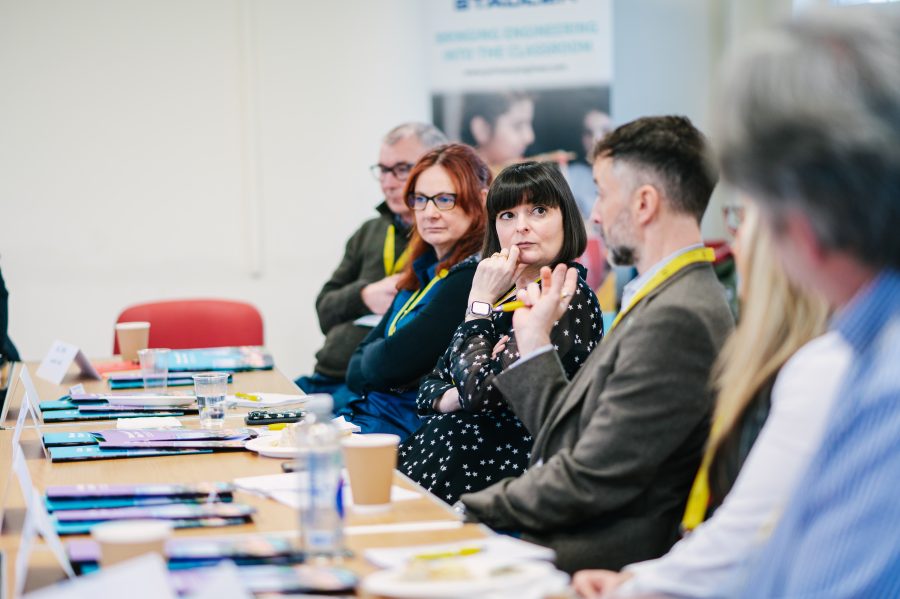
Alongside the key findings of the report are next steps Primary Engineer are taking to ensure the programme continually improves and reaches more pupils, not only in Wales, but also in Scotland and England. Industry, Government and Education come together again for a panel discussion in Scotland on April 17th with The University of Edinburgh, and again at Rail Live in June alongside Porterbrook Rail – both of which partner with Primary Engineer.
The programme continues to be available to school pupils across England, Scotland and Wales thanks to the many partners who fund the programme, with over 300 schools and 14,500 pupils expected to take part in the 2023/2024 academic year.
The report, which is available in both English and Welsh, is available from the Primary Engineer website: https://www.primaryengineer.com/keeping-kids-on-track.
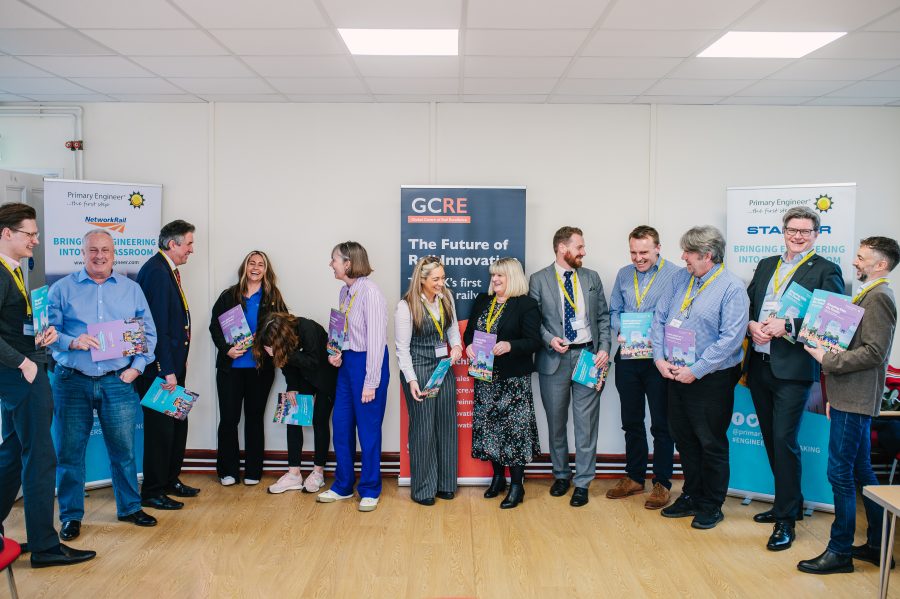
The post New Report Reveals Transformative Impact of Primary Engineer Rail Programme on School pupils appeared first on Primary Engineer.
]]>The post Celebrating the joy of engineering with Primary School pupils! appeared first on Primary Engineer.
]]>Our Primary Engineer Programmes provides STEM-based professional development for 2 teachers in a school, allows pupils to build and test their own models while getting to interact with engineering professionals in class, as well as attending a joint school event as they celebrate their achievements at the end of the programme.
These events are a chance for pupils and teachers to showcase their amazing engineering achievements. Imagine a morning filled with “organized chaos and fun” where students get to chat with industry professionals about the models they’ve built.
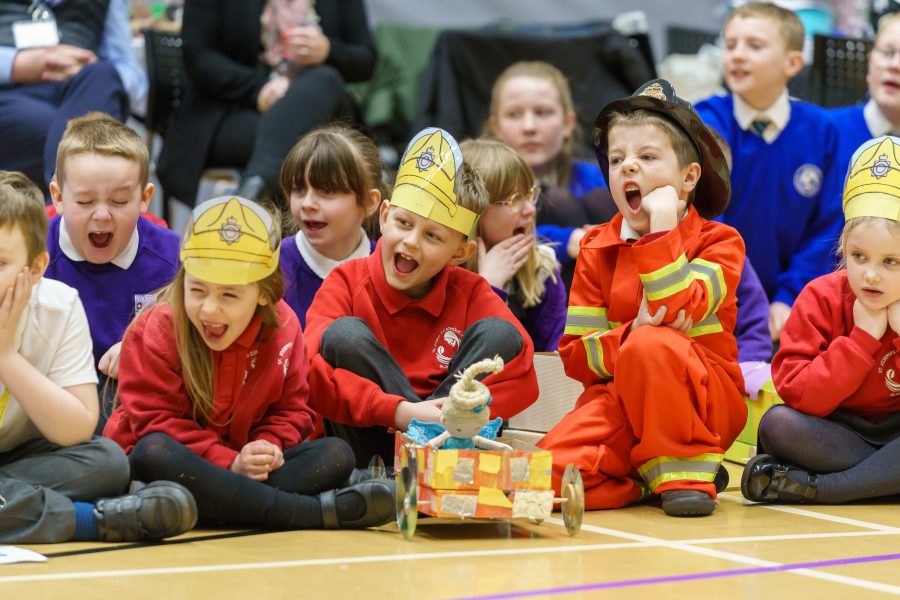
It’s all about recognising the incredible effort put in by both pupils and teachers.
Huge thank you to Reece Foundation for making this happen! And thank you to Adient, North East Automotive Alliance, Port of Tyne and ADC Electrical for supporting too!
This was just the beginning! We’ve since completed more celebration events around the UK and we’ve got more to come..
The post Celebrating the joy of engineering with Primary School pupils! appeared first on Primary Engineer.
]]>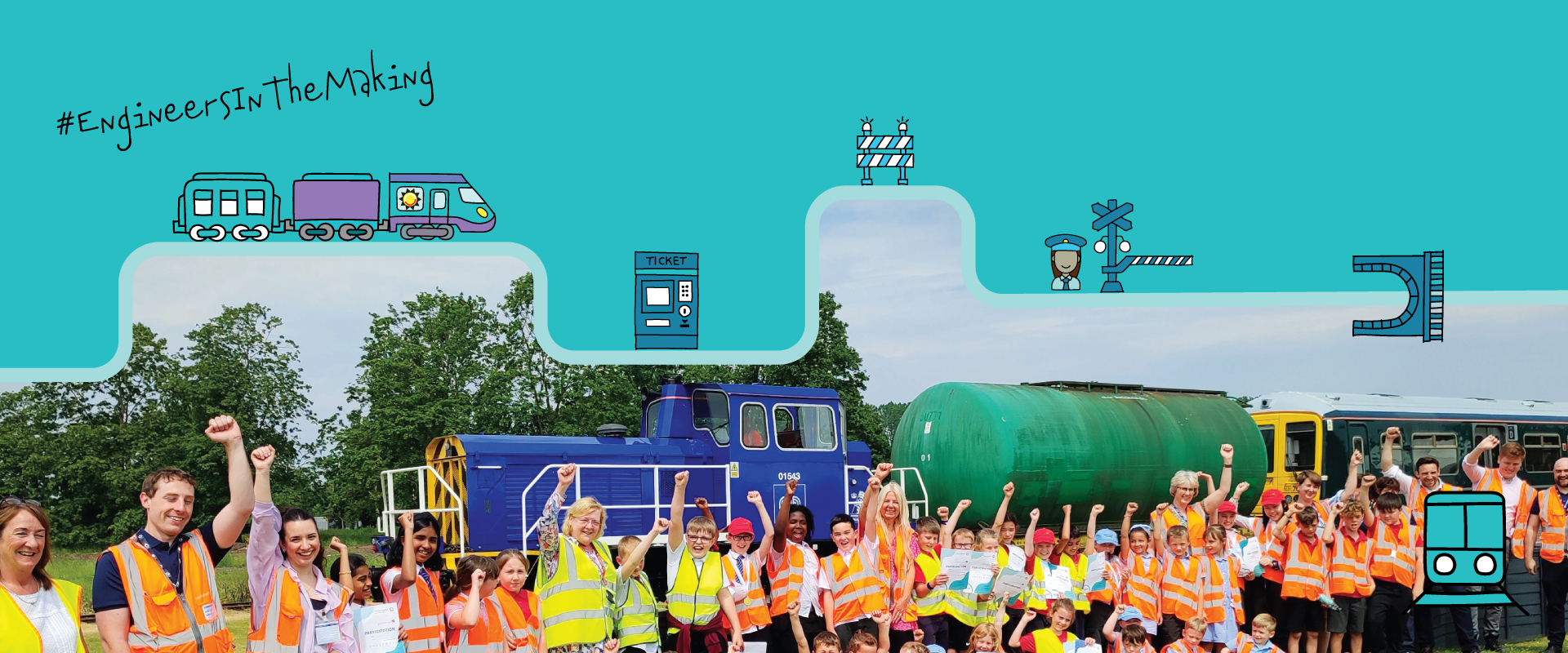

Keeping Kids On Track:
Evaluating Five Years of
The Primary Engineer Rail Programme
Keeping Kids On Track:
Evaluating Five Years of The Primary Engineer Rail Programme
English Language
Welsh Language
If you would like to get in touch to learn more about the Primary Engineer Rail Programme, or how you can get involved with Primary Engineer, please get in touch here: [email protected]
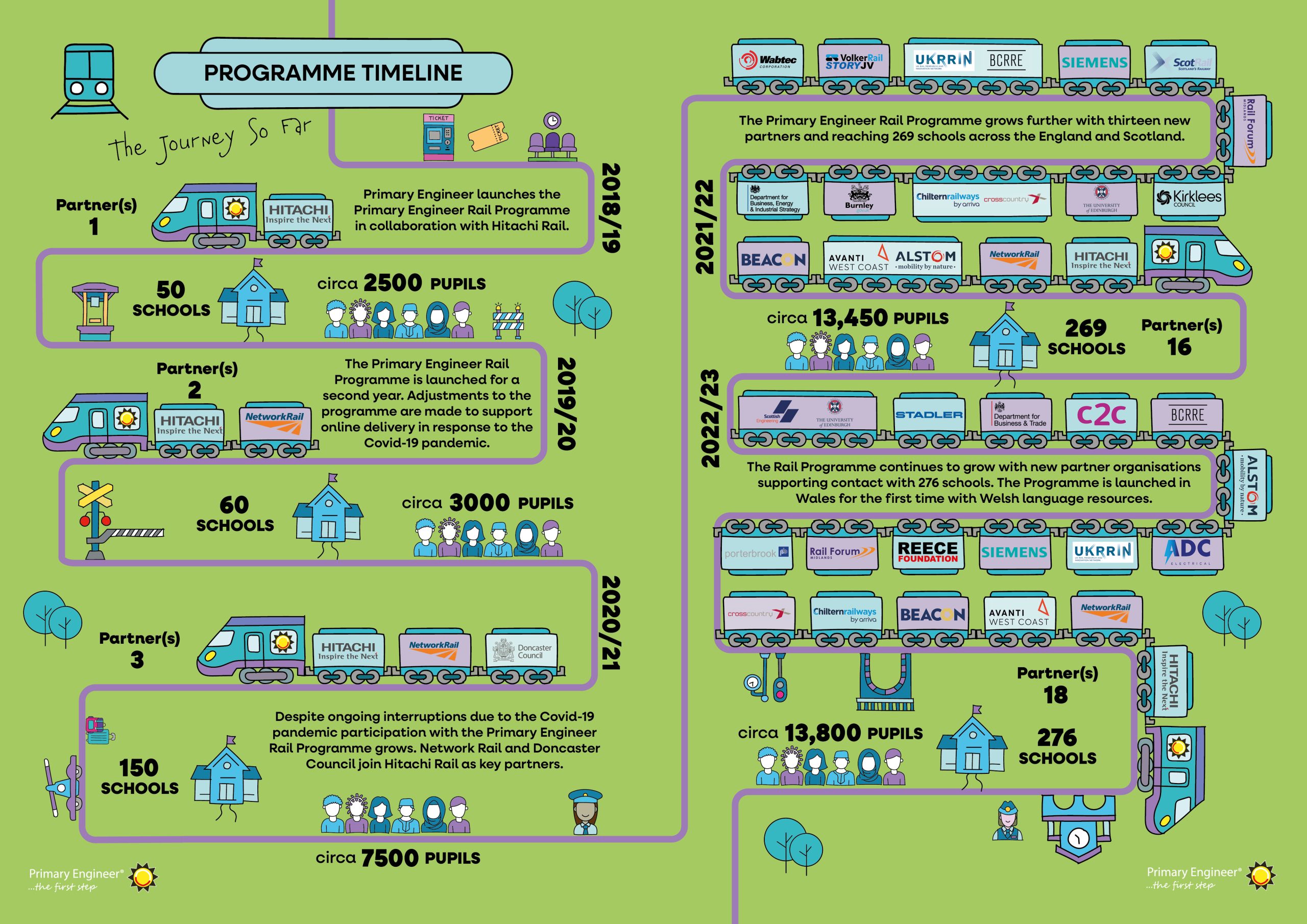
English Language
Keeping Kids On Track:
Evaluating Five Years of The Primary Engineer Rail Programme
Keeping Kids On Track:
Evaluating Five Years of The Primary Engineer Rail Programme
Welsh Language
Cadw plant ar y trywydd iawn:
Gwerthuso pum mlynedd Rhaglen Reilffyrdd Primary Engineer
Cadw plant ar y trywydd iawn:
Gwerthuso pum mlynedd Rhaglen Reilffyrdd Primary Engineer
If you would like to get in touch to learn more about the Primary Engineer Rail Programme, or how you can get involved with Primary Engineer, please get in touch here: [email protected]

The post Keeping Kids On Track: Evaluating Five Years of The Primary Engineer Rail Programme appeared first on Primary Engineer.
]]>The post Ulster University mid-way prototype update appeared first on Primary Engineer.
]]>Rox, our Engineer Relationship Manager, checked in with the Ulster Prototeam to see how they were getting on and find out any updates!
During the last update, we were told that at this point in the prototype project all of the CAD drawings would be done and ready for printing and we are thrilled to hear this has indeed been done!
The next step, will be to set up a meeting with their technician to discuss the design element and the process of printing using the universities 3D printers. Once they have done this, they we will go ahead and start testing the prototype.
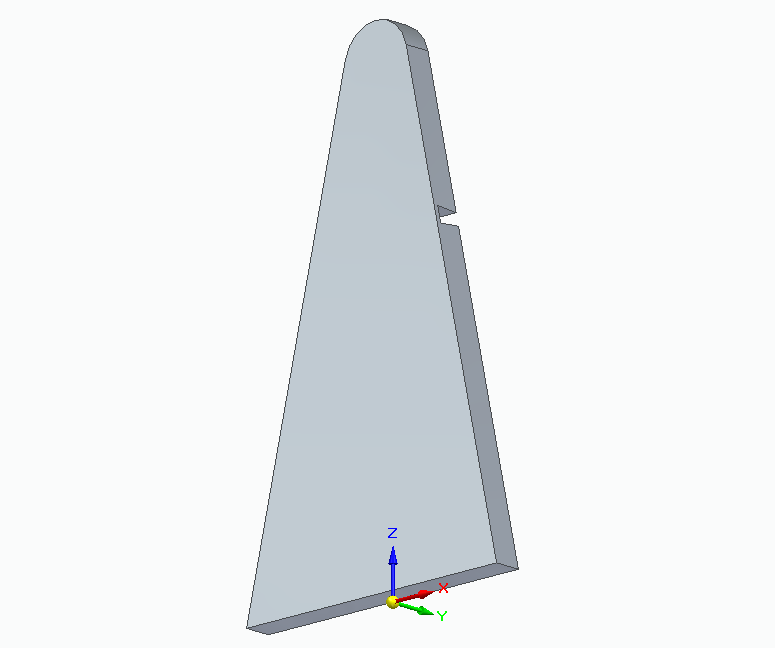
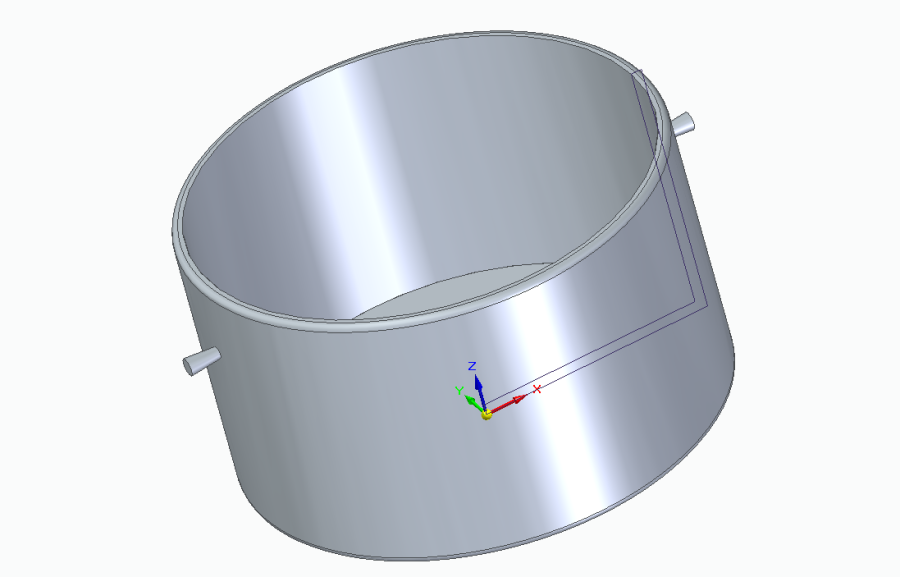
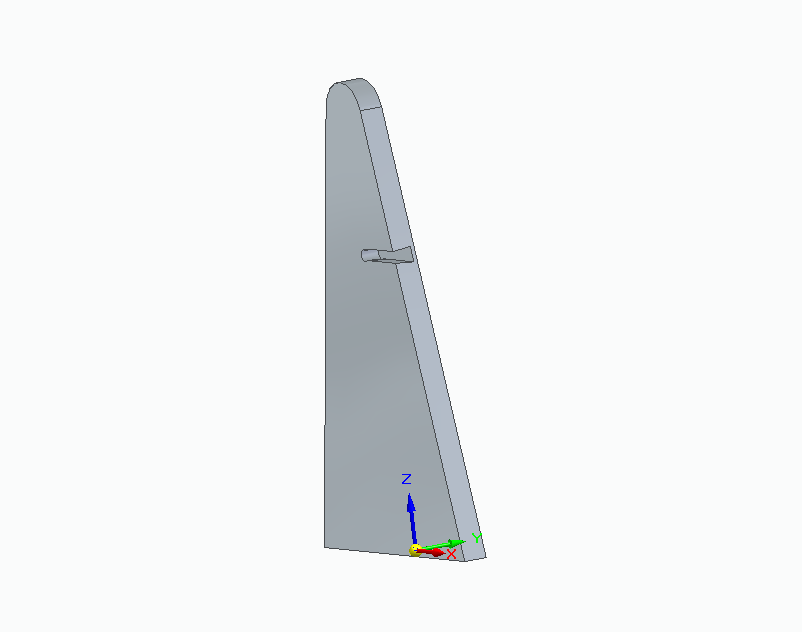
The above images show the leg frames and the kettle cup holder which once printed, we will be assembled together.
It’s all coming together quite nicely and we can’t wait for the next update on this prototype!
The post Ulster University mid-way prototype update appeared first on Primary Engineer.
]]>The post University of Exeter creating the Worry Watch appeared first on Primary Engineer.
]]>University of Exeter are one of our University Prototyping Partners for Devon and Cornwall as part of our annual engineering competition which asks pupils aged 3-19 ‘If you were an engineer what would you do?’ and encourages pupils come up with creative solutions to real-world problems.
Introduction
University of Exeter will turn Year 4 pupil Gracie’s Worry Watch into a reality with their prototype.
University of Exeter have selected this design to turn into a prototype over the 2023/2024 academic year and it will be unveiled at the Devon and Cornwall Awards Ceremony and Public Exhibition during the Summer term.
They chose this design because mental health conditions affects 1 in 8 of the population and it’s so important to have products or methods in place to help.
Beginning the Prototype
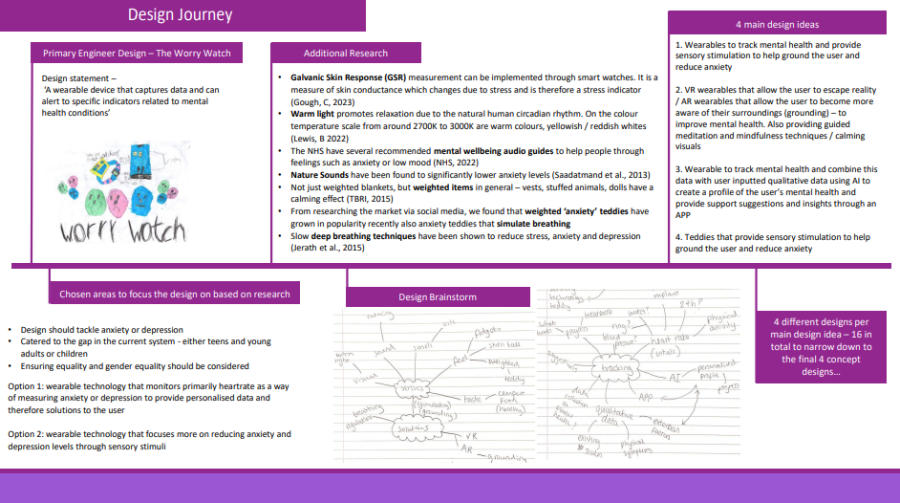
The prototeam have adapted the original design to become a wearable item/teddy bear that can track and utilise common coping mechanisms for those with anxiety, depression or other mental health conditions.
In the image above, we can see just a snippet of the extensive research and planning that has gone into this prototype. They have even created a Low-Fi teddy prototype!
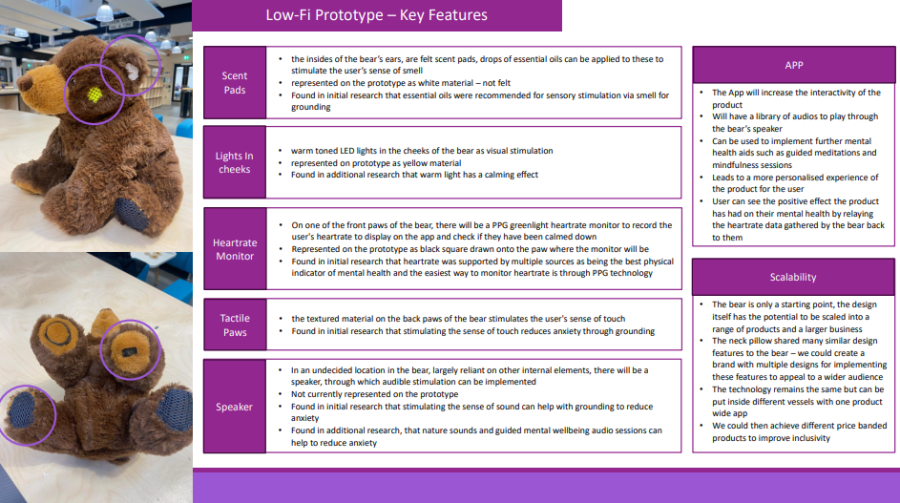

We can’t wait for the next update on this prototype!
The post University of Exeter creating the Worry Watch appeared first on Primary Engineer.
]]>The post University of Exeter creating the Calm Protectors appeared first on Primary Engineer.
]]>University of Exeter are one of our University Prototyping Partners for Devon and Cornwall as part of our annual engineering competition which asks pupils aged 3-19 ‘If you were an engineer what would you do?’ and encourages pupils come up with creative solutions to real-world problems.
Introduction
University of Exeter will turn Year 2 pupil Elouise’s Calm Protector into a reality with their prototype.
University of Exeter have selected this design to turn into a prototype over the 2023/2024 academic year and it will be unveiled at the Devon and Cornwall Awards Ceremony and Public Exhibition during the Summer term.
They chose this design because they recognise that there is an increase number of children and adults suffering from hearing sensitives which can lead to learning problems and self-esteem problems and there’s not enough care/products available to help people.
Beginning the Prototype
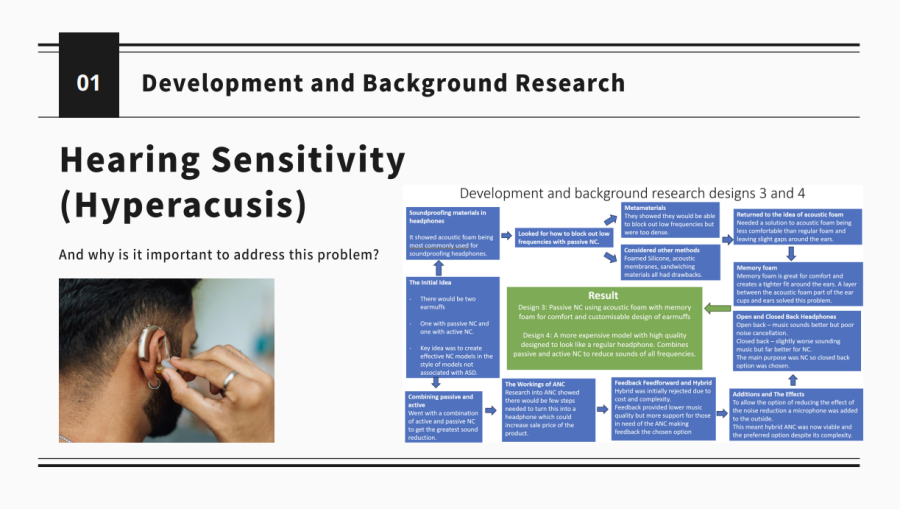
The team have researched several market options including in ear, over ear, on ear and ear muffs to
limit auditory sensory overload. They have already created a very very low-fidelity prototype.
Their final solution will be 3D printed and mocked up on CAD soon. There are several
sketches provided to highlight the development.
But ultimately want a fully adjustable earplug that is discrete, capable of blocking unwanted
background noise; anywhere from 10% – 95% of unwanted auditory noise eliminated. Utilising a novel
conical shape design, that will rotate and allow for a staggered audio holes to be completely blocked,
partially open or entirely open.
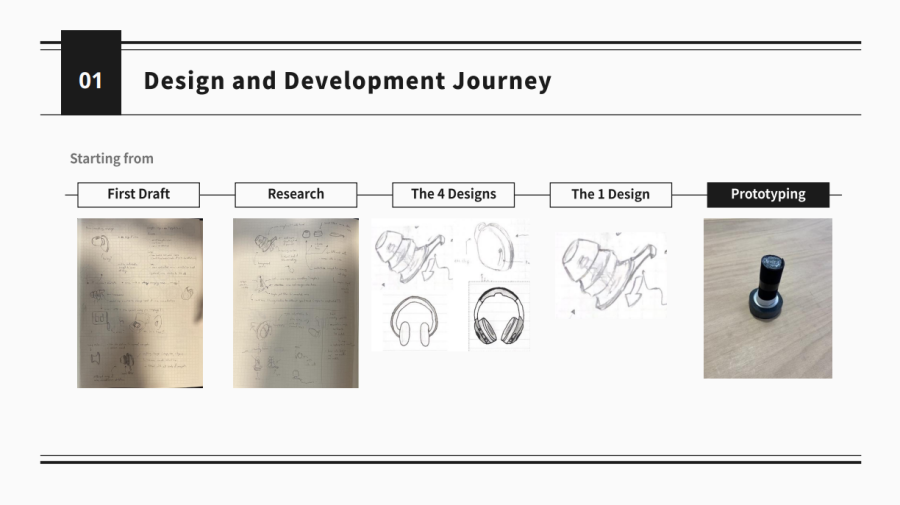
We can’t wait for the next update on this prototype!
The post University of Exeter creating the Calm Protectors appeared first on Primary Engineer.
]]>